Internacionales
Interview with journalist Ronen Bergman after his Mossad report in NY times
After the important repercussion that had the note published by the New York Times on the report of the Mossad detailing what happened in the attacks in Argentina in the 1990s, its author Ronen Bergman agreed to talk to the AJN Agency in order to know details of this publication. Ronen is a prestigious journalist, a very informed professional on issues of terrorism and military intelligence and the Mossad report, quoted by the NYT, is the result of many years of investigations carried out by this Israeli intelligence agency.

Agencia AJN (By Daniel Berliner*).-
Agencia AJN. As you may already know, your article generated a lot of commotion in Argentina and some misinterpretation, what do you think about this?
Ronen Bergman: It is not for me to discuss other publication. I’ll be happy to discuss the NYTimes story.
AJN. Could you at least tell us what your note essentially wanted to convey?
The Mossad believes that Iran approved and funded the attacks, supplied training and equipment. The operation itself, on the ground, was executed by a secret Hezbollah unit called 910. Also, and very important are Mossad’s finding that the perpelrtrators were not abetted knowingly by any Argentine citizens or officials.
AJN. To be clear, the perpetrators of the attacks in Buenos Aires were members of Hezbollah.
That’s right, the perpetrators who came to Buenos Aires to carry out the attacks were Hezbollah operatives, and what has been done now, as a result of information that has been received in recent years, is to understand what really happened in the attacks.
AJN.- Could you tell us who was involved?
In the Mossad report there are names of many people, people who are alive today, found refuge in Beirut and even rose through the ranks within Hezbollah. Against some of them the Interpol issued a Red Notice, some not, and they were involved in the attack itself, in Buenos Aires.
Mossad also quoted information came from prosecutor Alberto Nisman’s materials refering to the decision-making process between Iran and Hezbollah.
AJN. In Argentina, it was surprising that the report talks about the non-participation of a local connection.
When the Mossad says that there was no local connection, this refers to the direct involvement of government officials or Argentine citizens in the two terrorist attacks. The Mossad did not investigate everything that happened after the attack, including various accusations against local government officials for helping to cover up the investigation or disrupting it. If there were any Argentine citizens who rented a vehicle or had an interaction with the Lebanese, according to Mossad, they had no knowledge that they were helping Hezbollah in a future attack. Therefore, according to the Mossad’s investigation, whoever sold the cars used for the attacks to Hezbollah did not do so knowingly and no evidence was found that extremist nationalists in the local government aided the attack.
Let me point out that the AMIA bombing, was one of the deadliest anti-Semitic attack in the world since the end of World War II.
AJN. How would you define Hezbollah?
It is an organization that was created in 1982 by the Iranian regime, through the Revolutionary Guard and since it was founded it has been influenced by Iran, which finances political, military and social activity. Hezbollah is an organization that functions as a state within a state in Lebanon, Hezbollah’s activity requires a lot of money and resources. For a long time, although Iran spoke about its support for Hezbollah, it did not recognize that it helped in military matters, but in recent years it began to do so and today it expresses it clearly.
AJN. Are Hezbollah and Iran two sides of the same coin?
Iran’s support for Hezbollah, unlike other organizations that Tehran supports, such as the Palestinian movements Hamas or Islamic Jihad, is very different. Hezbollah’s existence as the main political, social and military force in Lebanon is dependant on Iran. Iran and Hezbollah are Shiites and for this reason there are not only closeness of interests, but a much deeper issue, I would say that they see each other as very close and trusted allay. While Hezbollah leaders received religious education in the same religious institutes as the ones from Iran and the Lebanese organization shares the same political ideology as Iran.
*Director of AJN News Agency.
Collaboration of Fernando Olschansky and Martín Solzi for English and Hebrew translation.
Guerra
Irán. AIEA: El reactor de agua pesada de Arak fue dañado por un ataque israelí
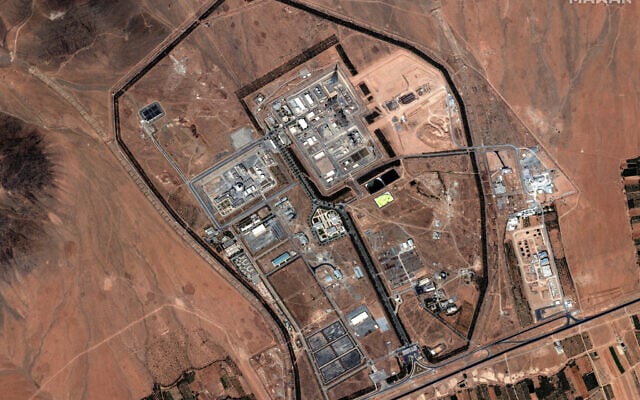
Agencia AJN.- Los ataques militares israelíes alcanzaron el reactor de investigación de agua pesada Khondab de Irán, un proyecto en construcción que aún no había comenzado a operar, y dañaron la planta cercana que produce agua pesada, según el organismo de control nuclear de la ONU.
Israel ha atacado varias instalaciones nucleares en Irán. El reactor de agua pesada, tal como se diseñó originalmente, habría podido producir fácilmente plutonio que eventualmente podría haberse utilizado en una bomba nuclear, aunque Irán niega que busque tales armas.
Sin embargo, en virtud de un acuerdo de 2015 con las principales potencias, la planta fue rediseñada para reducir el riesgo de proliferación y su núcleo fue retirado y rellenado con hormigón. Irán había informado a la Agencia Internacional de Energía Atómica, con sede en Viena, que el reactor entraría en funcionamiento en 2026.
“La AIEA tiene información de que el reactor de investigación de agua pesada de Khondab [ex Arak], en construcción, fue alcanzado. No estaba operativo y no contenía material nuclear, por lo que no se produjeron efectos radiológicos”, tuiteó.
«Si bien los daños a la cercana planta de producción de agua pesada inicialmente no eran visibles, ahora se considera que los edificios clave de la instalación sufrieron daños, incluida la unidad de destilación», añadió el organismo.
Internacionales
Trump desmintió al Wall Street Journal: “No tiene idea de lo que pienso sobre Irán”

Agencia AJN.- A través de una publicación en su red Truth Social, el presidente de Estados Unidos, Donald Trump, desmintió hoy al Wall Street Journal: “No tiene idea de lo que pienso sobre Irán”.
El periódico norteamericano aseguró que el presidente estadounidense aprobó los planes de ataque contra Irán, pero que postergó dar la orden final para ver si Teherán abandonaba su programa nuclear.
Según las fuentes del Wall Street Journal, Trump espera que la amenaza de unirse a los ataques de Israel lleve a Teherán a abandonar su programa nuclear.
Según el Wall Street Journal, Trump habría dado instrucciones privadas a los militares en la Sala de Crisis de la Casa Blanca el martes por la noche.
El foco de estadounidenses e israelíes estaría en la planta iraní de enriquecimiento de uranio llamada Fordow. No obstante, Israel aún no ha atacado la instalación, que se encuentra bajo una montaña y, según expertos militares, está fuera del alcance de casi cualquier bomba, salvo las más potentes.
-
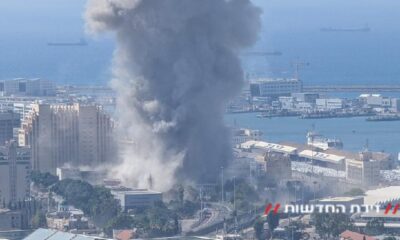
 Israelhace 8 horas
Israelhace 8 horasIsrael: 17 heridos, dos de ellos graves, tras impacto de misil balístico iraní en Haifa
-
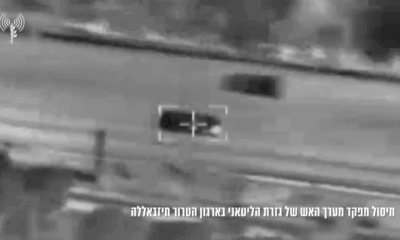
 Medio Orientehace 8 horas
Medio Orientehace 8 horasEliminado en el sur del Líbano el comandante de artillería de Hezbollah responsable de ataques contra Naharía y Haifa
-

 Israelhace 10 horas
Israelhace 10 horasNetanyahu y el jefe del Estado Mayor de las IDF se reúnen con altos funcionarios de EE. UU. mientras Trump evalúa atacar Irán
-
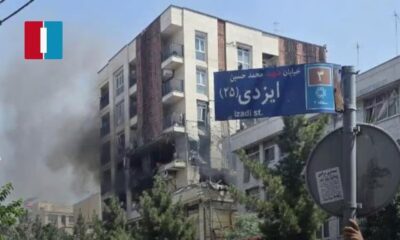
 Medio Orientehace 10 horas
Medio Orientehace 10 horasInforme: Ataque con drones en Teherán habría tenido como objetivo a científico iraní especializado en armamento
-
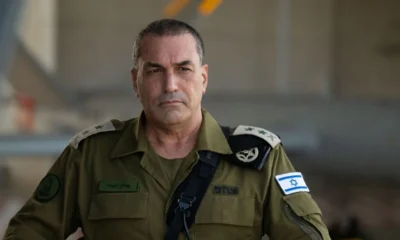
 Israelhace 4 horas
Israelhace 4 horasEl jefe de las FDI insinúa una guerra prolongada: «Lanzamos esta campaña para eliminar la amenaza»
-
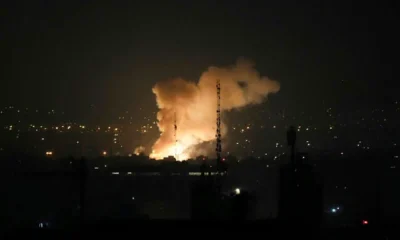
 Guerrahace 17 horas
Guerrahace 17 horasIrán. Israel ataca instalaciones militares y un centro de investigación nuclear en Teherán
-

 Israelhace 10 horas
Israelhace 10 horasLa aerolínea israelí El Al ofrece a sus clientes la opción de regresar a Israel desde Chipre en crucero
-
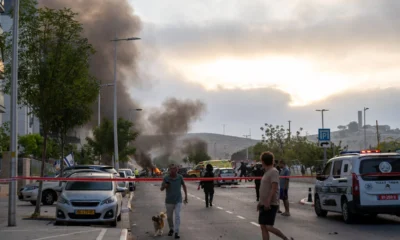
 Guerrahace 18 horas
Guerrahace 18 horasUn misil iraní impacta en Beer Sheba y causa graves daños



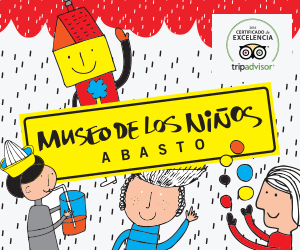
 Suscribite al Whatsapp!
Suscribite al Whatsapp!